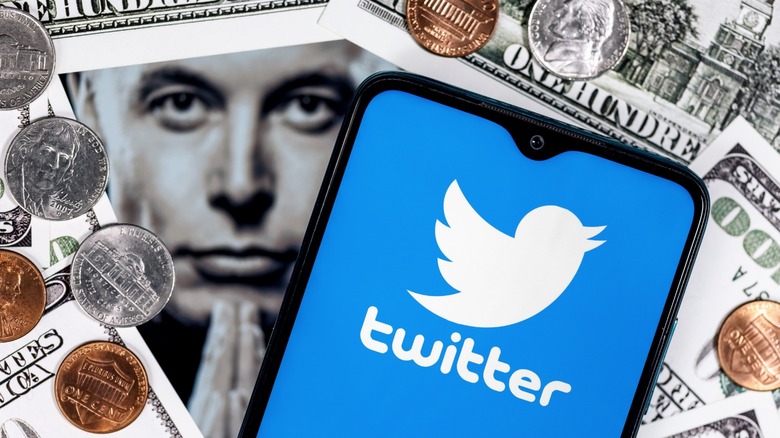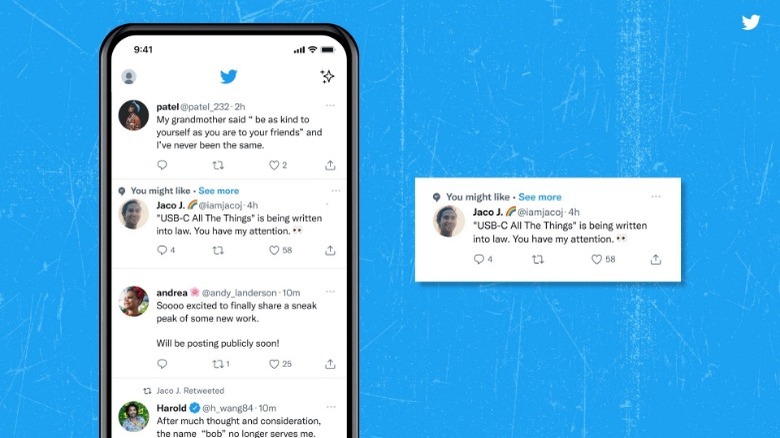Twitter Is Rolling Out Recommended Tweets To Everyone
Since Elon Musk's purchase of Twitter, the social media platform has had a bit of a tumultuous time. When Musk took ownership of the company, he claims to have done so in the name of free speech, but some of the changes Twitter is making under its new leadership seem arbitrary, somewhat unnecessary, and perhaps even detrimental to Twitter's own well-being, as is the case with the ever-changing verification badge and Twitter Blue subscription. The latest change to Twitter, however, is probably less of a decree from on high, and more of a response to the overall industry trends towards algorithm-driven content delivery over traditional engagement.
More and more social media platforms have already shifted to an algorithm-based structure. Facebook's parent company Meta is doubling down on the commitment to A.I.-powered recommendations in July 2022, stating in an earnings call that it aims to double the number of recommended posts on users' feeds on both Facebook and Instagram by the end of 2023 (via Bloomberg). While Twitter has had recommendations for a while now, it's changing who it delivers them to, and how it decides what to recommend.
Recommendations for all
Twitter first introduced recommendations on the timeline back in 2014, according to The Guardian. The original iteration of the recommendation service initially focused on new users, with the platform presenting content and accounts, seemingly in an effort to make the platform easier to use and boost user retention. The changes to Twitter's recommendations now make it so that even older accounts that tweet often will receive recommended tweets.
According to Twitter, the algorithm analyzes content you've interacted with in the past, as well as the content the people you regularly interact with are interacting with, including things like retweets, likes, and comments. Twitter calls these analytics and signals, and the algorithm uses these signals to decide which content you might want to see or are more likely to interact with. This method of content recommendation is a bit of a double-edged sword in many cases — while it can help the platform grow and encourage user engagement outside of echo chambers, it can also drive division and promote negativity.
As a research paper published in the Proceedings of the National Academy of Sciences (via PubMed) found, most people are more neurologically activated by negative content, and since negativity is somewhat subjective — especially when it comes to controversial topics like politics — the logic follows that argumentativeness is more likely. Fortunately, there's a button on the top of the Twitter timeline that lets you choose between top tweets and new tweets.

